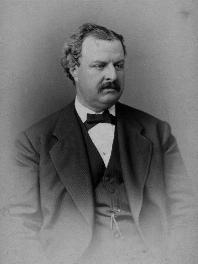Co-founder of the National League (1832–1882)
For the American naturalist and writer of fiction, see William Davenport Hulbert.
Baseball player
Haupert, Michael. "William Hulbert". Society for American Baseball Research. Retrieved 3 March 2016.External links
| William Hulbert | |
|---|---|
 | |
| Born:(1832-10-23)October 23, 1832 Burlington Flats, New York, U.S. | |
| Died: April 10, 1882(1882-04-10) (aged 49) Chicago, Illinois, U.S. |
| Preceded by None | Owner of the Chicago Cubs 1876 – 1882 | Succeeded by |
| BBWAA Vote |
|
|---|---|
| Veterans Committee | |
| J. G. Taylor Spink Award |
|
| Ford C. Frick Award | |
|
Members of the Chicago Cubs Hall of Fame | |
|---|---|
| Pitchers | |
| Catchers | |
| Infielders | |
| Outfielders | |
| Managers | |
| Executives | |
| Broadcasters | |
(1) Clubhouse Manager (2) Public Address Announcer | |
Principal owners of the Chicago Cubs franchise | |
|---|---|